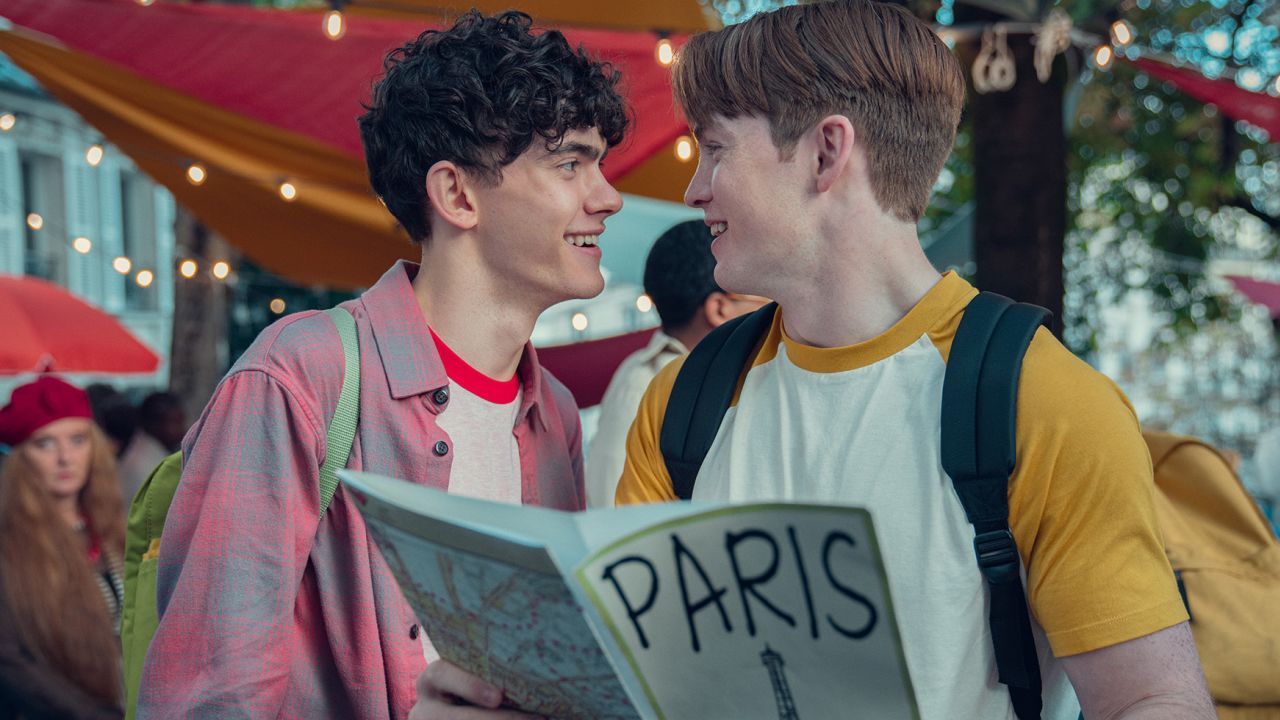CNN —
Nothing particularly dramatic happens during “Heartstopper,” the British teen drama that returns for its second season this week. And that alone, oddly, makes the show – which the San Francisco Chronicle rightly dubbed “the anti-‘Euphoria’” – feel somehow revolutionary, even more so a year after its US debut.

The first season of the series, adapted by director Euros Lyn and writer Alice Oseman from the latter’s graphic novel, centered primarily on the budding romance between Charlie (Joe Locke), a shy openly gay boy; and Nick (Kit Connor), a rugby star who is just coming to grips with his sexuality.
What set “Heartstopper” apart, though, had as much to do with what it wasn’t as what it was, with an emphasis on quiet moments, the uncertainty of first love and a generally accepting attitude toward its LGBTQ characters, including parents who embrace and support their gay kids.
To the extent the first season dealt with Charlie and Nick falling for each other, the second seems more conspicuously uneventful. They’re together, but operating mostly in secret except for a few close friends, as Nick grapples with coming out not only at school but to his relatives, who aren’t all as enlightened as his caring mom (Olivia Colman, who, along with “Secret Invasion,” has added streaming TV to her busy movie schedule).
The new season also picks up and runs with a thread involving the movie-obsessed Tao (William Gao) and Elle (Yasmin Finney), a trans girl mulling a promising art career beyond her high-school days. Longtime friends, both have harbored secret feelings for the other, but bridging the gap from friendship to dating unfolds with the sort of sweet, halting awkwardness that largely defines and distinguishes the series.
As noted, “Heartstopper” stands out in part by veering toward the light as opposed to the darkness. In doing so, the British import found an open lane between the frothiness of most Disney Channel fare and the bleak and brutal imagery of teen life that garnered “Euphoria” (along with its telegenic cast) a disproportionate volume of media attention.
The irony is that an increasingly strident discussion surrounding the gay-rights movement has made “Heartstopper” feel as if it’s leaning into a cultural debate simply by approaching young love in such a tender, matter-of-fact manner. The show nevertheless struck a receptive chord when it premiered, in part because it’s so unabashed about the buoyancy (indeed, euphoria) of those youthful experiences, deftly using music and animation to illustrate the explosions going off inside the characters’ heads.
After the first season, Collider suggested the show had “dismantled” stereotypes just by dispensing with so many that we have come to associate with LBGTQ stories. CNN’s Katia Hetter called it “the queer teen love story I didn’t know I needed,” noting that having come out in the 1990s, “It’s an innocent love story that so many of my out peers and I wish we had had growing up.”
At a time when being provocative is often deemed the quickest and easiest way to get noticed, nothing about “Heartstopper” is explicit or even edgy, other than a fair amount of snogging. How we got to a point where that alone can be considered a breakthrough is perhaps more of a commentary about our political times and media culture than Oseman’s delicately constructed series.
“Heartstopper” begins its second season August 3 on Netflix.

















































